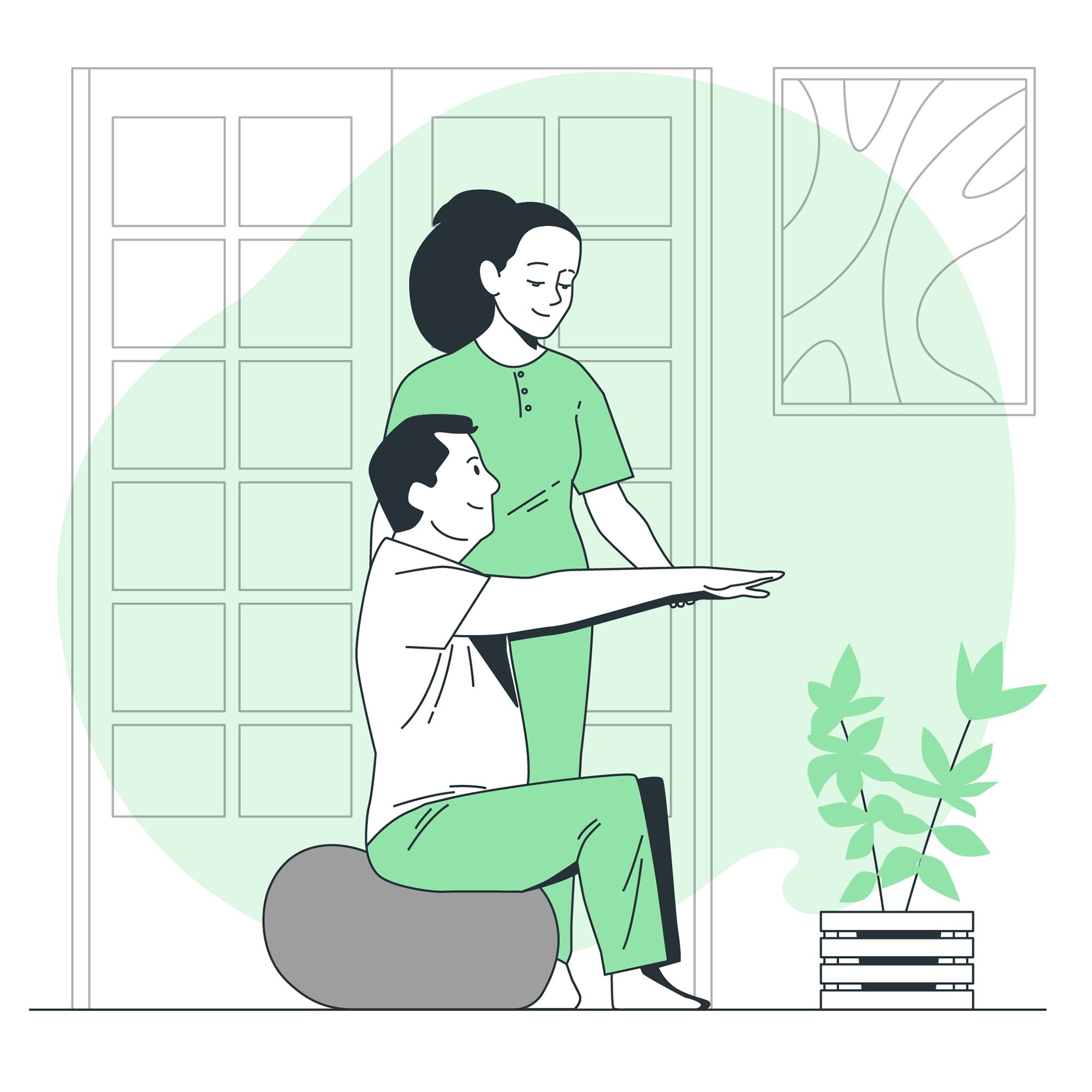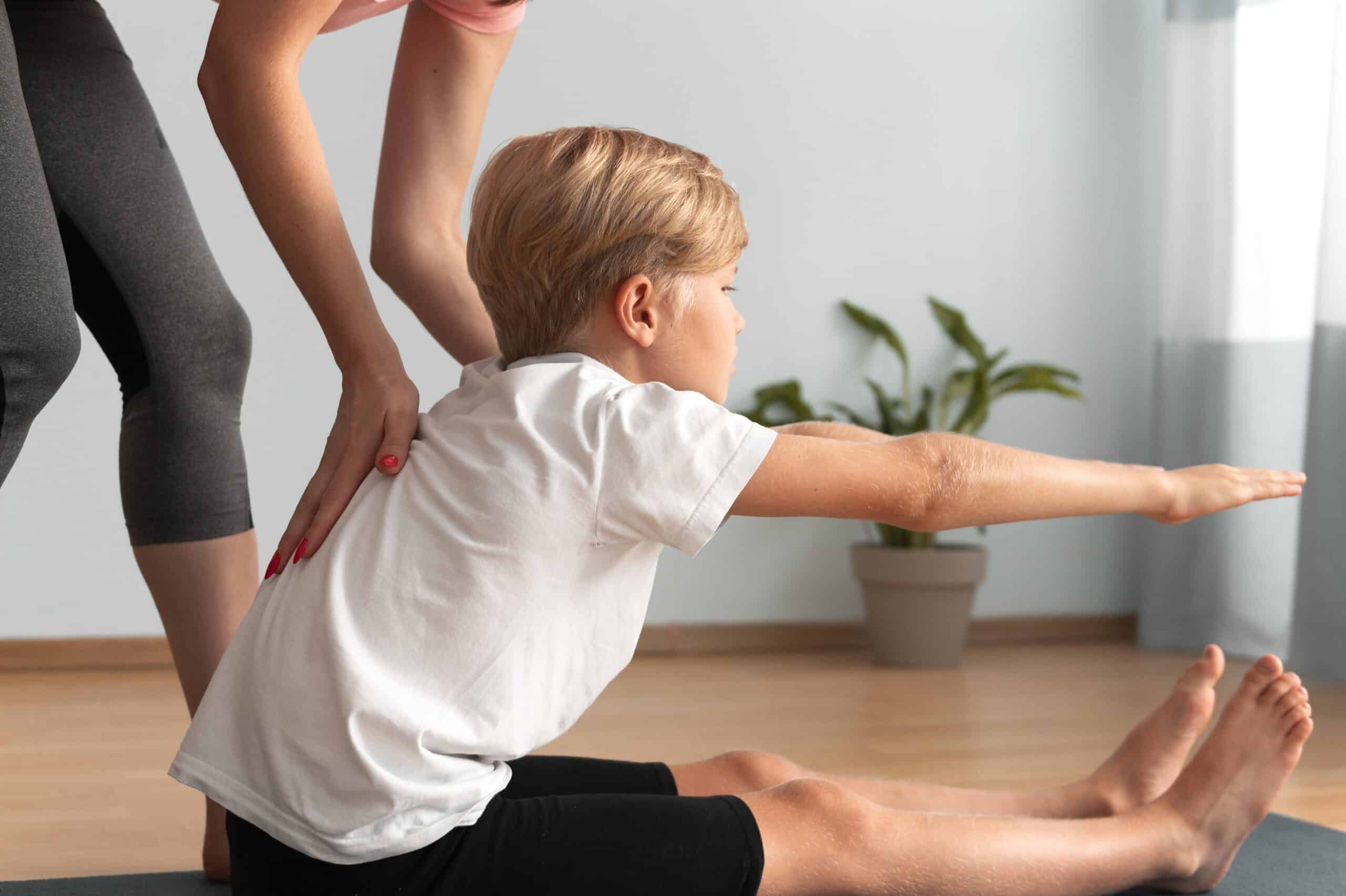The Role of Physiotherapy in Pre and Post Natal Women
Sreevarsha Veedu, Physiotherapist
May 10, 2023 | News

Women’s Health Physiotherapy provides support for women through all stages of life. This could be pre-natal, during pregnancy, post-natal, pre and post-menopause and after gynecological surgery.
There are multiple physical changes to a woman’s body related to pregnancy. The centre of gravity changes, there is more pressure on the organs, and there is increased weight to be carried. All of these in a relatively short period often lead to back pain, pelvic pain, and urinary incontinence.
During pregnancy even before the bump starts showing, the body goes through major changes. The posture and the way the body moves change, the weight going through the joints increases, and the muscles, ligaments, and soft tissues get more flexible and elastic to allow the pelvis to stretch to accommodate the baby. All of these changes happen due to hormonal changes and they are very important.
Over two-thirds of pregnant women experience back pain, one-fifth experience pelvic pain, and over 40% experience urinary incontinence in their first pregnancy – with half remaining incontinent at 8 weeks post-partum, and one third experiencing a new onset of incontinence after childbirth.
A Physiotherapist can help relieve lower back pain, pelvic pain, and urinary incontinence in pregnant women. Even though these symptoms seem common, if they are left untreated they can become worse over time.
It is within the scope of practice of a Physiotherapist to properly assess, treat and educate pregnant women in effective and safe exercises that have been shown to decrease back pain, pelvic pain, and urinary incontinence – throughout their pregnancy and post-partum.
Seeing a Physiotherapist in pregnancy and postpartum for the right treatment and guidance to prevent and treat all of these issues is key.
During pregnancy your physiotherapist will help you by:
- Prescribing safe exercises and advice for you to stay fit and healthy
- Teaching you about posture and strategies that may help you to reduce the risk of strain and discomfort on your lower back and pelvic joints during pregnancy
- Treating and preventing low back pain or pelvic girdle pain.
- Teaching you about the pelvic floor muscles and how to do pelvic floor exercises.
- Giving you advice on how to rest comfortably as well as on how to overcome some other pregnancy-related minor problems.
- Preparing your pelvic floor for labor and teaching you about perineal massage and other strategies.
- Giving you advice on posture and active strategies for pain management during labor.
After childbirth, you can see a physiotherapist to have an abdominal and pelvic floor muscle assessment. This can be done from 6 weeks postpartum onwards.
The six-week postpartum check is recommended for the rehabilitation of the pelvic floor muscles and abdominal area postpartum. This is especially important not only for the women who have symptoms but also for the women who want to return to exercise safely.
In this postpartum check your physiotherapist will be able to help you by:
- Giving you advice on how to recover after childbirth (whether you had a vaginal delivery or a C-section)
- Assessing your posture, breathing, abdominal muscles gap (diastasis rectus abdominis), and pelvic floor muscle function.
- Creating an exercise plan to rehabilitate your pelvic floor muscles and your abdominal muscles
- Giving you advice on how to exercise safely in the postpartum
- Treating any symptoms of pelvic floor dysfunction that may have arisen from childbirth
- Teaching you about bladder, bowel, and sexual health and improve your pelvic health.
Physiotherapist assists women with a wide spectrum of conditions such as:
Urinary and Fecal incontinence
Pregnancy & Postnatal
- Guidelines on safe exercise during pregnancy
- Provision of Antenatal Classes·
- Treatment and management of Pelvic Girdle Pain including symphysis pubis dysfunction·
- Low back pain
- Rib pain/Thoracic Pain
- Carpal tunnel syndrome
- Postnatal rehabilitation of pelvic floor and abdominals (including Diastasis Rectus Abdominis)
Pelvic Floor Dysfunction·
- Prolapse
- Sexual Dysfunction (Dyspareunia)
- Chronic Pelvic Pain
- Bowel Conditions
- Constipation
- Fecal Incontinence
What are the treatments?
Based on the results of the assessment, your physiotherapist will recommend a treatment program that has been specifically developed for you, so there is no standard treatment in this area.
Treatment For Pelvic Floor/Bladder & Bowel Conditions May Include:
- Exercises to strengthen or release the pelvic floor muscles
- Manual therapy
- Advice about healthy bladder and bowel habits
- Discussion surrounding possible lifestyle changes that will help manage the problem
Treatment For Musculoskeletal Conditions May Include:
- Manual therapy
- Exercises to strengthen weak muscles
- Stretches to reduce tension in tight muscles
- Kinesio-taping therapy
- Advice regarding activities
- Discussion surrounding possible lifestyle changes that will help manage the problem
- Provision of supports/braces
In line with the ICF model approach, our experts will devise your treatment program. They will use a combination of strengthening exercises, and/or electrical stimulation, advice on sleeping postures, toileting and positional modifications, relaxation techniques for treating your condition.
Do you want help preparing your body for pregnancy? Kindly contact us to discuss your options with our physiotherapists.
Recent post

The Hidden Link: Posture and Mental Health

The Effect of Poor Posture on Spinal Health

Why Chiropractic Care is Important – Even for Babies and Children

Healing After Surgery: How Physiotherapy Accelerates Recovery

Chiropractic vs Physiotherapy: What’s Best for Back Pain?

Spinal Decompression Therapy: A Non-Surgical Solution for Back Pain Relief
Recommended Posts

Difference between Dry Needling and Acupuncture
by
Intesar Hussain, Physiotherapist
September 13, 2024

Travel without pain this summer!
by
Dr. Imran Ali, DC MChiro
July 16, 2023

Healing After Surgery: How Physiotherapy Accelerates Recovery
by
Intesar Hussain, Physiotherapist
May 7, 2025






